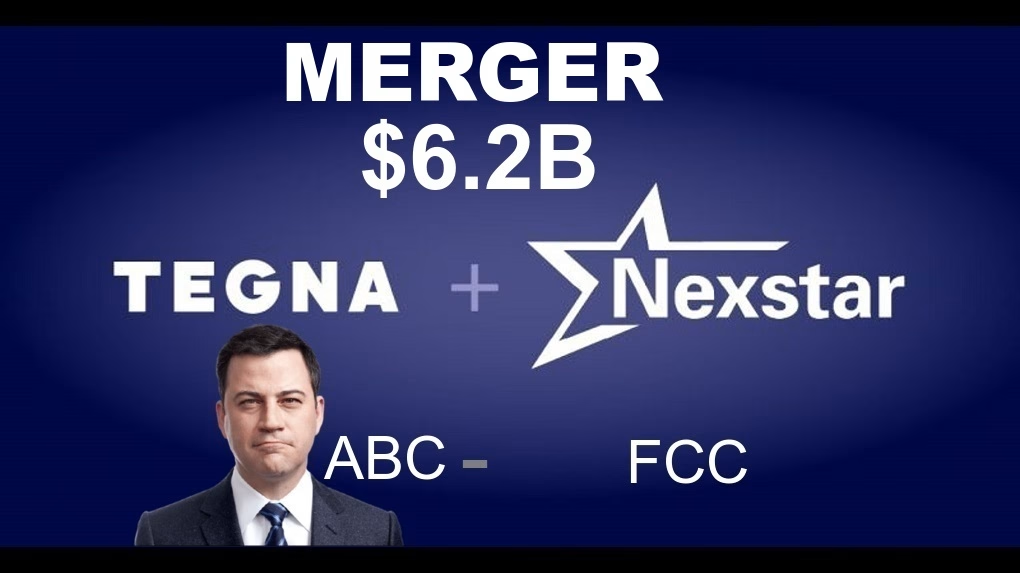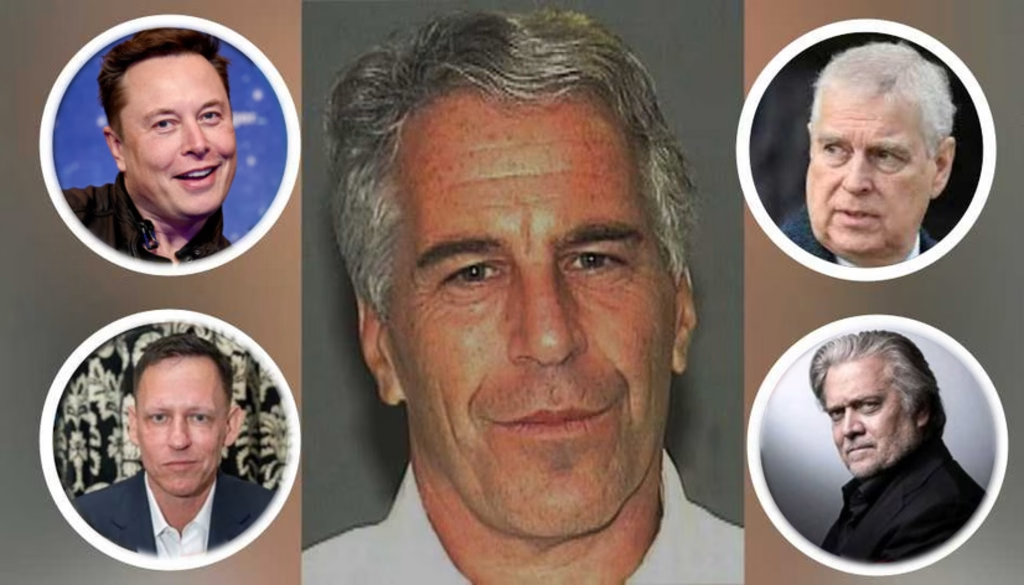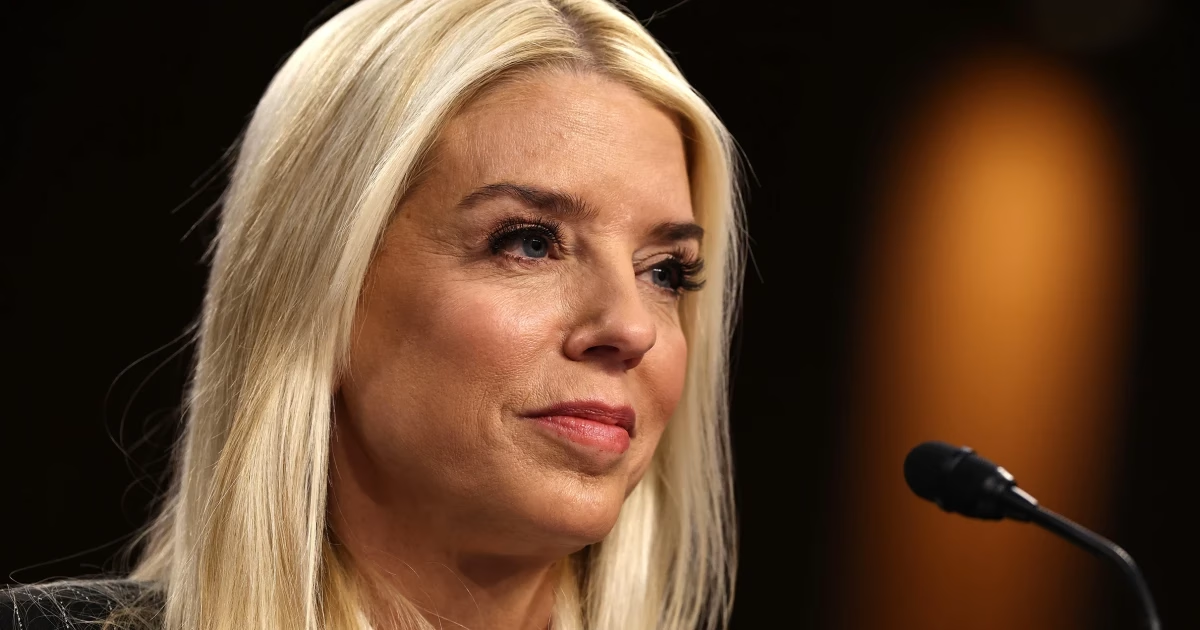By Jane Lewis & Mary Jones | Thursday, September 18, 2025 | 10 min read
In the United States, the relationship between politics, media, and corporate power has always been complicated, but during Donald Trump’s presidency it reached new levels of tension. What once would have been unthinkable — a president openly demanding the removal of comedians and pushing corporations to bend to his will — suddenly became a recurring theme. The removal of Jimmy Kimmel from ABC is the latest example, and it did not happen in a vacuum. It unfolded against a backdrop of corporate mergers, regulatory pressure, and a president unafraid to use the machinery of government to shape culture in his favor.
No president before Trump tried to control entertainment in this way. Richard Nixon, who left office disgraced and is still remembered as one of the most corrupt leaders in American history, never went after Johnny Carson. Carson mocked presidents from time to time, but his jokes were usually gentle and rare. During his thirty years on The Tonight Show, from 1962 until 1992, Carson might make one or two political jokes and then move on. Politics, for most Americans then, was often boring — even reassuringly so. Presidents were treated as serious figures, not as punchlines. The thought of Nixon calling NBC to demand Carson be silenced would have been absurd.
But Trump has always been different. For him, politics is theater, and he has never tolerated being the butt of the joke. That sensitivity became especially clear as late-night comedians made him a near-daily target. Shows like The Late Show with Stephen Colbert, Late Night with Seth Meyers, and Jimmy Kimmel Live! built entire monologues around Trump’s behavior, his scandals, and his rhetoric. And instead of shrugging it off, Trump pushed back — hard. He leaned on allies in government and corporate America to fight those who mocked him.
The Kimmel Controversy
The immediate spark for Kimmel’s removal came earlier in the week. On Monday night, he addressed the killing of conservative activist Charlie Kirk and the political frenzy that followed. Kimmel questioned the ideological leanings being attributed to the accused killer, Tyler Robinson, and accused Trump supporters of trying to twist the tragedy for their own agenda.
“The MAGA gang [is] desperately trying to characterize this kid who murdered Charlie Kirk as anything other than one of them and doing everything they can to score political points from it,” Kimmel said. “In between the finger-pointing, there was grieving.”
The comments drew swift condemnation from Brendan Carr, chair of the Federal Communications Commission. Carr publicly criticized Kimmel and went as far as suggesting the FCC could review or revoke ABC affiliate licenses if Disney, ABC’s parent company, failed to take action. In effect, Carr dangled the threat of regulatory retaliation, raising fears that his real motive was not oversight but vengeance.
By Wednesday, ABC announced that Jimmy Kimmel Live! would be pulled off the air “indefinitely.” The move sent shockwaves through the entertainment world, with many seeing it as an example of how political pressure can silence even the most established voices in late-night comedy.
FCC Pressure and Political Retaliation
The intervention of the FCC in a matter of comedy set a dangerous precedent. Historically, the commission’s role has been to oversee technical standards and protect consumers, not to police satire. Yet Carr’s remarks suggested otherwise. By openly tying Kimmel’s fate to ABC’s broadcasting licenses, he introduced a new form of political retaliation: use of regulatory power to enforce loyalty.
For critics, this was alarming. It meant that late-night jokes — long considered harmless, even necessary cultural commentary — could now endanger a network’s ability to operate. Free expression was no longer shielded by the assumption that regulators stayed above partisan disputes. Instead, satire itself risked becoming a bargaining chip in the larger struggle between corporations and the federal government.
The Nexstar–Tegna Merger
At the center of Jimmy Kimmel’s sudden removal from ABC is more than just Donald Trump’s obvious dislike for his humor—it’s also deeply tied to the business interests of Nexstar, one of the country’s most influential owners of local television stations. Nexstar recently announced a staggering $6.2 billion merger with Tegna, a move that would dramatically expand its reach and influence across American broadcasting. When a single company wields that level of control over affiliates and programming, every decision it makes can send shockwaves through the media landscape.
The merger, unveiled on August 19, 2025, is still under scrutiny by the Federal Communications Commission (FCC) and the Department of Justice, with a final decision not expected until the latter half of 2026. Even before regulatory approval, Nexstar moved quickly to safeguard its standing with the administration. The company announced that Jimmy Kimmel Live! would no longer air on its ABC-affiliated stations “for the foreseeable future.” The explanation was straightforward: Nexstar said it “strongly objects to recent comments made by Mr. Kimmel concerning the killing of Charlie Kirk” and promised to replace the show with alternative programming.
This decision highlights how corporate consolidation and political pressure can intersect, turning editorial and programming choices into strategic maneuvers rather than purely creative ones. For Nexstar, keeping the merger on track and maintaining favor with powerful political figures clearly took precedence over the continuity of a long-running late-night show.
Not long after, ABC itself followed Nexstar’s lead, saying the show would be “pre-empted indefinitely.” A spokesperson declined to provide further details, but the message was clear: the comedian who had repeatedly skewered Trump and his allies was now off the air, and corporate consolidation had given executives even more incentive to align with political demands.
The timing raised eyebrows. Earlier in the year, Paramount canceled Stephen Colbert’s Late Show, another Trump critic’s platform, citing financial reasons. Officially, the network insisted it was not about politics. But many observers noted the coincidence that Paramount was seeking FCC approval for its merger with Skydance at the time. Appeasing the Trump administration may have made the process smoother.
Kimmel’s removal followed the same pattern. Trump himself seemed almost gleeful when he posted on Truth Social congratulating ABC for “finally having the courage to do what had to be done.” To his supporters, silencing Kimmel was framed as a victory over Hollywood elitism. To his critics, it was a chilling sign of how fragile free expression can become when media companies bow to political and financial pressure.
Trump has always thrived on outrage. He knows that when his critics howl, his followers rally. In his eyes, the more attention his attacks on comedians get, the stronger he appears. Outrage itself becomes proof that he is “winning.” That’s why he prefers headlines about feuds with Kimmel or Colbert rather than coverage of policy failures. When the national conversation shifts to late-night jokes, he controls the stage.
But beyond the theater of it all, something deeper is happening. Free speech in America has always been protected by a combination of law, culture, and corporate independence. When one of those pillars weakens, the entire balance tips. Today, the law still protects satire, but culture and corporations are bending under political and financial weight. As conglomerates like Nexstar grow more powerful through megadeals, their willingness to stand up to government pressure shrinks.
The silencing of Jimmy Kimmel is more than a programming decision; it’s a reflection of what happens when political influence and corporate consolidation collide. It shows how quickly criticism can be muted when companies prioritize regulatory approval and profits over independence. And it raises a haunting question: if late-night comedians, whose very job is to poke fun at the powerful, can be taken off the air for doing just that, what does that mean for everyone else who dares to speak out?
Free Speech in the Age of Consolidation
Trump has long understood the power of outrage. The louder critics protest, the more his base rallies, turning criticism into a demonstration of his “strength.” By focusing national attention on late-night feuds, he controls the cultural narrative, steering conversations away from policy failures and toward personal conflicts.
But beyond the theater, Kimmel’s ouster underscores a broader danger. Free speech in America depends on a balance of law, culture, and corporate independence. When corporate media grows concentrated and political influence intensifies, that balance can shift quickly. As conglomerates like Nexstar expand, their willingness to resist government or political pressure diminishes.
The silencing of Jimmy Kimmel is more than a programming decision; it is a reflection of the collision between political influence and corporate consolidation. It sends a clear message: criticism of the powerful carries real risks, and networks may choose compliance over independence. In a climate where late-night comedians can be removed for doing their jobs, the implications for journalists, activists, and everyday citizens who dare to speak out are profound.
The Broader Context: Global Authoritarian Parallels
This pattern is not unique to the United States. Authoritarian leaders in Hungary, Turkey, and Russia have consolidated media to stifle dissent. In Hungary, Viktor Orban used oligarch-linked media buyouts to control roughly 80% of the market. In Turkey, major media brands are aligned with Recep Erdogan. In Russia, oligarchs close to Vladimir Putin dominate the press. The Trump administration’s moves — approving the sale of Paramount, restructuring CBS, and influencing network content — echo this global playbook, consolidating media under allies and chilling dissent.
We are now in the fifth year of the Trump era, and the strategies deployed reflect a careful study of authoritarian media control. For comedians like Jimmy Kimmel, Stephen Colbert, and Seth Meyers, satire has become a high-stakes political act. As corporate networks increasingly capitulate, only independent and guerrilla media may offer a platform for unfiltered commentary. Kimmel’s removal is a stark reminder of how fragile free expression can become when politics, corporate consolidation, and regulatory power intersect — and how quickly cultural critique can be silenced when those forces align.
Free speech rarely dies all at once. It fades through a series of small decisions — networks pulling one show, corporations choosing compliance over resistance, politicians rewarding loyalty with favorable treatment. For decades, comedians like Johnny Carson could joke about presidents without fear of reprisal. Now, in a new media landscape shaped by billion-dollar mergers and a president eager to wield power, that luxury is gone.
Julia Roberts Shares How Martin Luther King Jr. and Coretta King Paid Her Birth Hospital Bill
UN Probe Concludes Netanyahu and Israeli Leaders Incited Deadly Genocide in Gaza
Trump’s Power Play at the Fed: The Fragile Strongman and the Battle Over Lisa Cook
The Disturbing Truth: Charlie Kirk’s Killer ‘Not Cooperating’ Exposes GOP Malicious Spin’
Epstein Scandal Topples a British Politician, Though Key Figures Remain Unscathed






